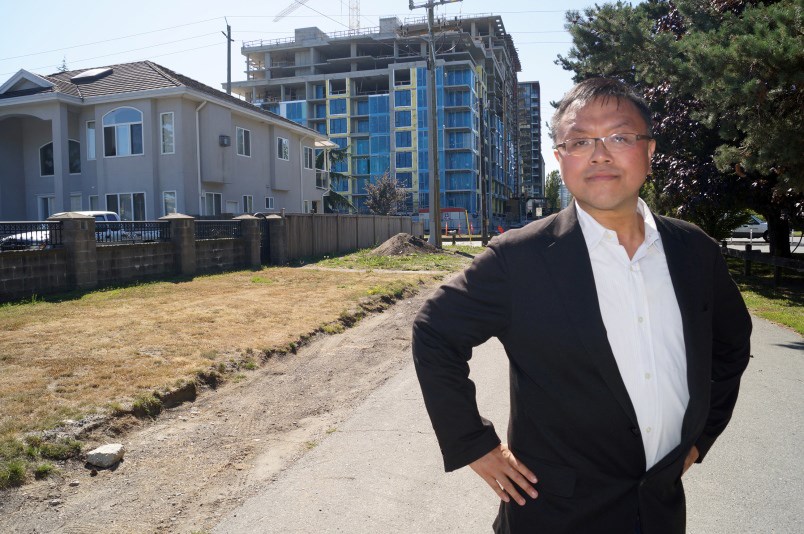Mutterings at Richmond city council of what to do with Richmond’s neighbourhoods in relation to affordable housing should inevitably lead to broader community discourse on what changes could, or should, be made, according to urban planner Andy Yan.
Furthermore, as Metro Vancouver continues on its path as a magnet of foreign capital and international migration, residents should scrutinize how housing should be defined.
“Is a home an investment, or a fundamental human right?” asked Yan, a senior urban planner with Bing Thom Architects and acting director of The City Program at Simon Fraser University.
“I think that’s the struggle in Richmond and elsewhere. There are certainly people that use homes as investments and others who raise families. And that’s created tension,” said Yan.
“I’m fascinated by the amount of foreign owner sales that have occurred in Richmond.
“Council has that challenge of adapting to those local conditions,” said Yan.
The Richmond Community Coalition, a municipal political party that includes councillors Chak Au and Ken Johnston, has stated this week that due to housing unaffordability and an exodus of families in neighbourhoods, it is time for the City of Richmond to “examine land use policy and building practices to encourage sustainable buildup of housing options” and “to investigate options to accommodate for more affordable housing options in neighbourhoods,” while maintaining neighbourhood’s characteristics.
It’s unclear if the options and land use policies to be examined include adding additional non-detached, multi-family dwellings, such as townhouses, into neighbourhoods. No one from RCC returned phone calls made by the News by press time.
Coun. Harold Steves has stated it’s time to explore such housing in parts of West Richmond, using existing models as a template.
Meanwhile, Richmond First councillors Linda McPhail, Derek Dang and Bill McNulty have yet to discuss if they intend to support plans for neighbourhood densification, according to McPhail last month.
RCC also wants to “investigate ways to use land more efficiently by increasing affordable housing stock in existing neighbourhoods.”
The city recently added zoning amendments to its arterial roads to allow more townhouses, rowhouses and coach houses to be built. It’s also requesting detached home properties that are rezoned into two lots to have at least one new secondary suite when possible.
Yan said changes are not just about housing structures.
“It’s not only about rezoning, it’s about change and how does that change occur in a city and neighbourhoods,” he said.
“Part of this is to realize it’s not only about housing, but also transportation and economic development. That’s part of that change and transition into a city,” said Yan.
“For many, change is hard, but when it is toward the greater inclusion of the community, it’s good.
“It’s about what people you want to live in the community. What are the principles behind your city? Having a city in which you can establish roots is a key principle for a lot of cities. And how do we have that kind of ecosystem to allow to establish those roots?” asked Yan, who said those principles aren’t necessarily found in single-family homes.
That said, if a city values families it will need to build multi-bedroom housing. Likewise, if it values elderly people, it will need to facilitate accessible housing.
With talk of densification, one place Yan said is a “no go” for development, is the region’s protected farmland.
“You’re going to need those farms as your climate change buffer and as your food buffer,” he said.
“Development is not only about where you develop, but it’s also about where you choose not to develop.”
Market remains hot in July
The Real Estate Board of Greater Vancouver reported this week that Richmond’s housing market remains a seller’s market.
The Benchmark price for an average single-family detached home rose one per cent to $1.72 million. The average property now sits at $884,000.



